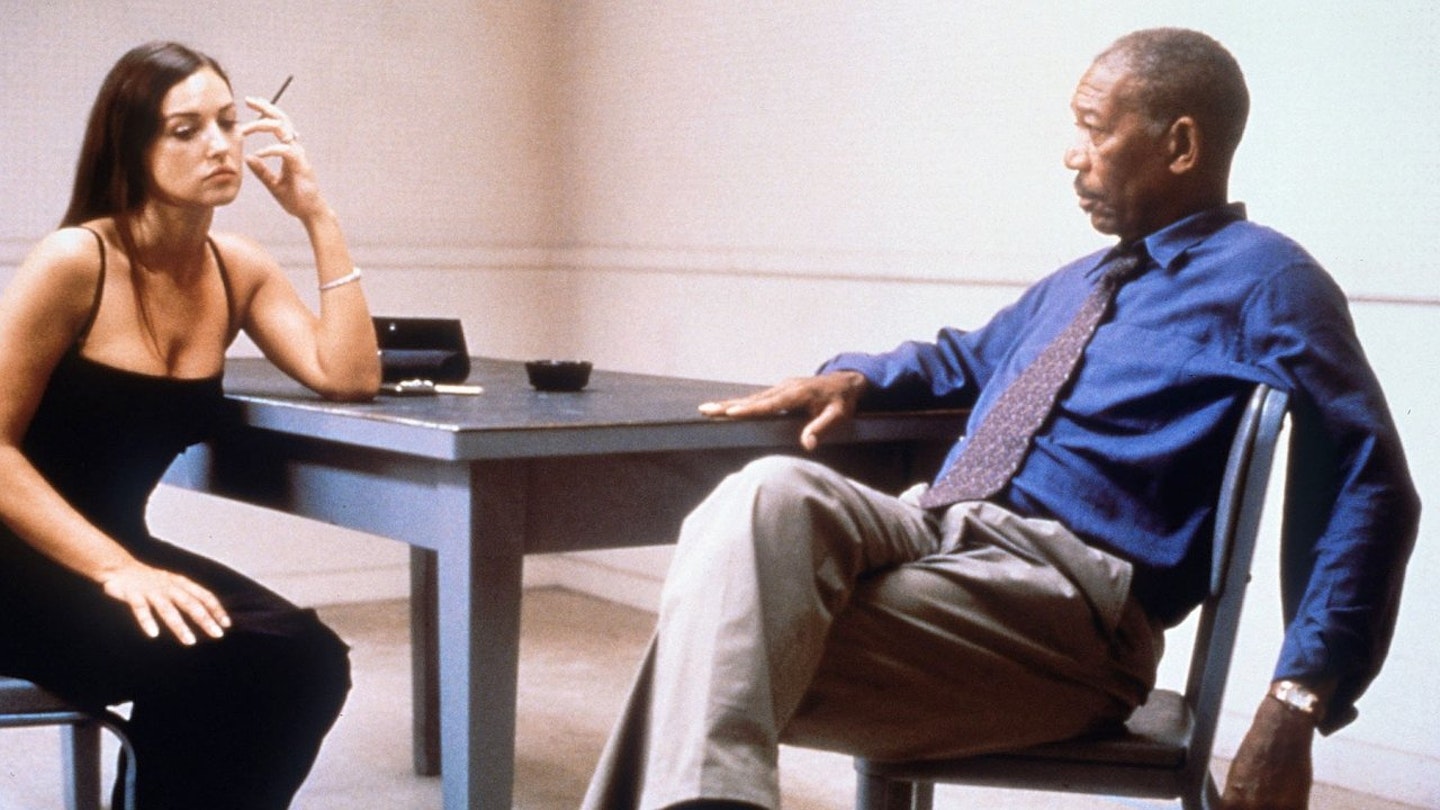This sultry remake of Claude Miller’s 1981 French film, Garde à Vue, features two heavyweights of American screen stepping into the ring for an almighty psychological punch-up - kicking, eye-gouging and dragging of sordid skeletons out of the closet.
Henry Hearst (Hackman) is a big-shot lawyer and influential society figure in the port town of San Juan in Puerto Rico. On the surface, he has it all - money, power, a beautiful young wife and a happy marriage. He is on his way to give a toast at the most important charity event of the season, when he is called in for a friendly chat by his old friend, Police Captain Victor Benezet (Freeman). Benezet is a man with problems. Two young girls have been raped and murdered and, as a candidate for Police Commissioner with two daughters of his own, he’s under pressure to find the killer. The convivial conversation between Benezet and Hearst quickly deteriorates when Hearst emerges as the prime suspect. What follows is an increasingly brutal confrontation, during which Hearst’s life is laid bare, his marriage revealed as a sham and some very deep, very dark secrets are brought to the surface.
On paper, Hackman vs. Freeman in a head-on, no-holds-barred bout of bruising mind games is a mouth-watering proposition, and Hopkins’ simmering, claustrophobic drama certainly has its moments - Freeman calmly, persistently probing a defiant Hackman until the cracks begin to show; Hackman surging back off the ropes when he’s accused of being a paedophile.
But the two leads are oddly muted, almost as if they are keeping the intensely emotional material in check. The overall pacing could be better, and there are too many moments when the escalating tension is allowed to break down. Hopkins’ visual chicanery is effective and the ending is intriguingly ambiguous. But as the credits roll, there’s an uncomfortable feeling that punches have been pulled.
